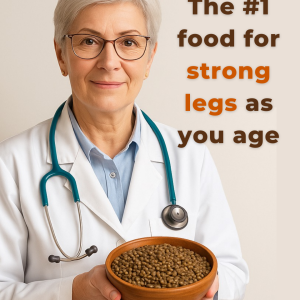
Cucumbers are light, refreshing, and hydrating—but not everyone’s body reacts to them the same way. For certain people, eating raw cucumbers may cause digestive discomfort, allergic reactions, or other health concerns. Below are four groups who should avoid or limit their intake, along with practical advice to stay safe.
1. People With Sensitive Digestion or Irritable Bowel Syndrome (IBS)
Why:
Cucumbers contain insoluble fiber (cellulose) in their skin and seeds, as well as natural bitter compounds called cucurbitacins. While harmless for most people, these can irritate sensitive digestive systems or trigger IBS symptoms. They may:
- Irritate the intestinal lining and speed up bowel movement, causing cramps, bloating, or loose stools.
- Produce excess gas when gut bacteria ferment the fibrous parts of the cucumber.
- Act as mild physical irritants, since cucumber seeds can pass through undigested.

Practical advice:
Peeling and deseeding cucumbers—or eating them in small amounts—can make them gentler on the stomach. Lightly cooking cucumbers (such as steaming or sautéing) softens the fiber and reduces digestive stress.
2. People With Cucumber Allergy or Oral Allergy Syndrome (OAS)
Why:
Cucumbers belong to the Cucurbitaceae family, which also includes melons, squash, and pumpkins. People allergic to these foods may experience:
- Classic food allergy: Immune reaction to cucumber proteins, causing hives, swelling, vomiting, diarrhea, wheezing, or—rarely—anaphylaxis.
- Oral Allergy Syndrome (OAS): In people allergic to pollen (ragweed, birch, or grass), raw cucumbers can cause mouth itching, tingling, or mild throat swelling due to cross-reactive proteins.
Practical advice:
If you’ve reacted to cucumbers, melons, or related foods, avoid them raw and consult an allergist. They can confirm the allergy and recommend an emergency plan, which might include antihistamines or an epinephrine auto-injector if needed.
Cooking typically destroys the proteins responsible for OAS, so cooked cucumbers (e.g., in soups or stir-fries) are often better tolerated.
3. People With Advanced Kidney Disease (Potassium-Restricted Diet)
Why:
Cucumbers are not especially high in potassium, but they do contribute to overall intake. In people with impaired kidney function, even moderate-potassium foods can cause potassium buildup (hyperkalemia), a condition that can lead to irregular heart rhythms or cardiac arrest.
Practical advice:
A medium cucumber with its peel contains a modest amount of potassium, safe for most individuals. However, those on dialysis or potassium-sparing medications should limit portion size or peel the skin to slightly lower potassium content.
Consult your nephrologist or dietitian to determine your safe potassium range and discuss suitable vegetable alternatives.
4. Pregnant Women, Older Adults, and Immunocompromised Individuals

Why:
Like other raw vegetables, cucumbers can harbor bacteria such as Salmonella or Listeria if not properly washed or handled. While healthy adults usually handle these microbes without issue, they pose serious risks for:
- Pregnant women (potential harm to the fetus)
- Older adults with weakened immune defenses
- People with compromised immunity (e.g., chemotherapy patients, transplant recipients)
Practical advice:
To reduce the risk of foodborne illness:
- Wash cucumbers thoroughly under running water.
- Peel them if cleanliness is uncertain.
- Avoid pre-cut or packaged cucumbers from unreliable sources.
- When in doubt, choose cooked vegetables or cucumbers prepared under hygienic conditions.
Extra Tips for Everyone
- Avoid very bitter cucumbers—high levels of cucurbitacins can cause digestive upset.
- Peel and deseed to reduce fiber, bitterness, and pesticide residue.
- Lightly cook cucumbers (stir-frying, sautéing, blanching) to make them easier to digest and safer for sensitive individuals.
- Consult your healthcare provider before making significant dietary changes, especially if you take medications or have medical conditions.




